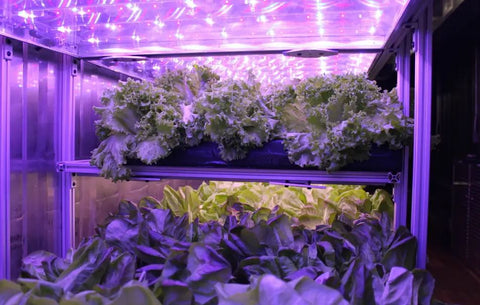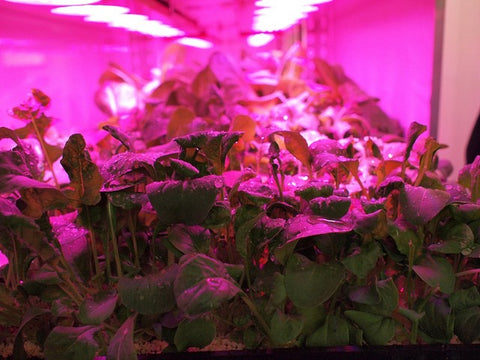Year-Round Crop Production
Because it's not dependent on the weather, you can achieve consistent year-round crop production without the impact of adverse weather conditions.Growing in a safe, climate-controlled environment allows for repeatable and programmable crop production. Technology allows automation to reduce harvest times and improve yield without compromising on flavor or quality.
Better Use of Space
Traditional farms need fertile arable land and a lot of it. Vertical container farms can be designed and built in any climate or location - regardless of weather conditions or extreme temperature. Vertical growing allows you to achieve higher productivity in a relatively small space.
3) More Sustainable Than Soil Farming
Indoor container farming can be more environmentally friendly since it reduces the number of fossil fuels needed for farming equipment. And while energy bills can be high, solar can help mitigate these costs to the environment.
Vertical farming helps improve biodiversity because it does not cause a land surface disturbance, which helps the natural animal population which lives in and around farms to thrive.

Less Resource Waste
If managed correctly and with the proper methods, growing crops in a vertical container farm offer the opportunity to eliminate the need for pesticides. Pests cannot easily enter a controlled environment to cause infestations, and fungal diseases can't survive as humidity levels are managed.
Vertical container farms, especially those that use hydroponics, use far less water than traditional farms as well. The water is recycled, and there is virtually no water wasted.

Reduced Transportation Costs
Growing crops closer to where customers live is a massive vertical farming benefit. It reduces transportation costs, and CO2 emissions and reduces the need for refrigerated storage – making produce fresher and more profitable.





